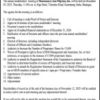In the trading world, the term margin trading attracts attention among those who want to increase their market exposure without investing large amounts of money up front.
But while margin trading can amplify potential gains, it can also increase risks. To help beginners understand how it works, analysts from BIW Management explain the concept, its benefits, and what traders should consider before using it.
What is margin trading?
Margin trading allows traders to borrow funds from their broker to open larger positions than they could with their own capital alone. Essentially, it means trading with borrowed money.
Here’s how it works: suppose you have $1,000 in your trading account, and your broker offers a 1:10 leverage ratio. That means you can control a position worth up to $10,000. The $1,000 is your margin, the amount you must deposit to secure the borrowed funds.
Following BIW Management, this system gives traders greater flexibility and the ability to access more opportunities in the market. However, it’s also important to understand that leverage magnifies profits and losses.
The advantages of margin trading
When used wisely, margin trading can offer several benefits:
Increased buying power: Margin allows traders to open bigger positions with less capital. This is especially useful for those who want to take advantage of short-term price movements.
More opportunities: With additional funds, traders can diversify their trades across multiple assets instead of focusing on one market.
Flexible strategies: Margin trading enables long (buying) and short (selling) positions. This means traders can profit from rising and falling markets.
Experts note that these advantages make margin trading attractive for active traders who understand risk management and market behavior. However, they also stress that leverage should not be used carelessly, as it can turn a small mistake into a significant loss.
The risks you should understand
Although margin trading can open new opportunities, it also brings greater responsibility. The most obvious risk is amplified loss. If your trade moves in the wrong direction, your broker may issue what’s called a margin call.
A margin call happens when your account no longer has enough equity to maintain your open positions. When this occurs, you must either deposit more money or close some trades to reduce your exposure. If you don’t act quickly, the broker might automatically close your positions to prevent further losses. This is known as liquidation.
BIW Management analysts explain that many beginners underestimate how quickly a leveraged position can move. For example, if you trade with 10:1 leverage, a 10% price move against your position could completely erase your margin. That’s why experienced traders always set stop-loss orders and monitor their positions closely.
Another risk involves emotional pressure. The possibility of large gains or losses can cause traders to make impulsive decisions. Managing emotions is as important as managing capital when using leverage.
Margin trading can be a useful tool for expanding trading potential, but it also carries significant risks that shouldn’t be ignored. It rewards careful planning, strong emotional control, and strict risk management.


















